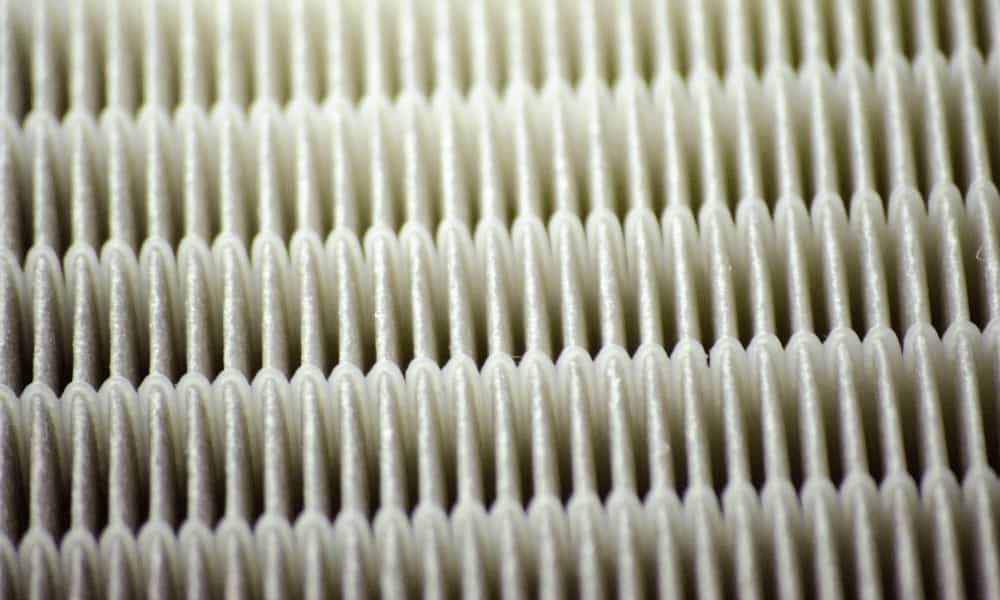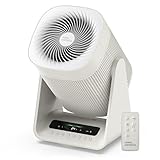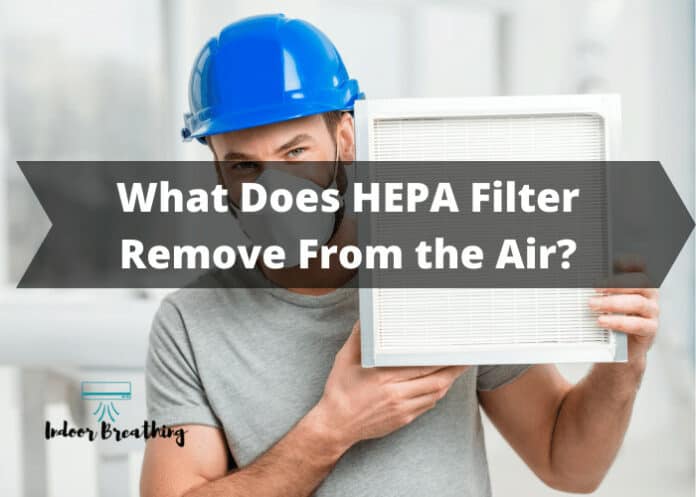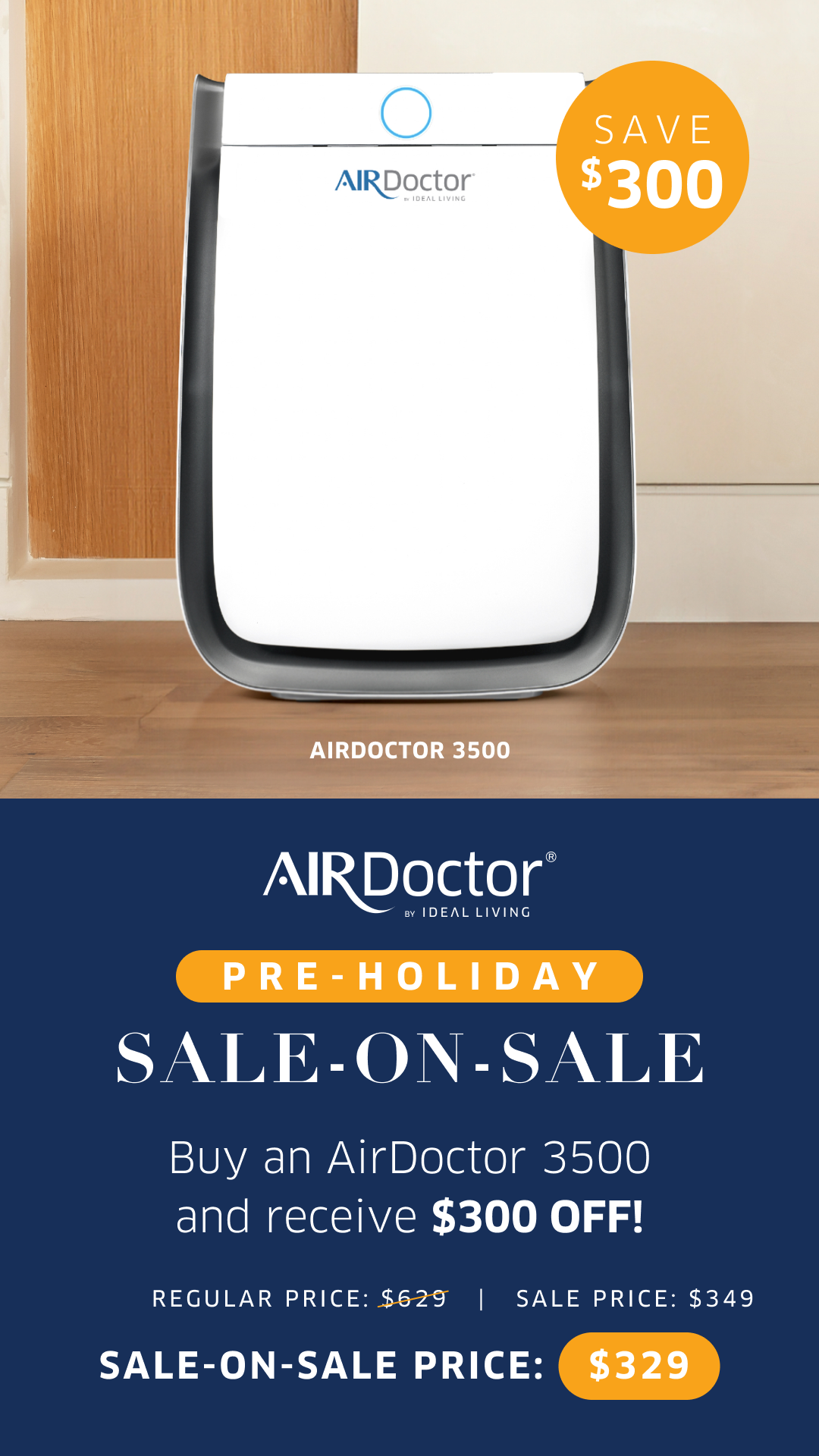Whether to keep the air inside your house clean or eliminate any unpleasant odors, Air Purifiers have become a necessity in many households nowadays. Moreover, the ongoing global pandemic has only made air purifiers more useful since some air purifiers can remove tiny harmful particles.
Most air purifiers being sold nowadays feature a HEPA filter. HEPA Filter can filter very small and almost invisible pollutants floating in the air. HEPA filters best remove airborne substances that can cause health issues when inhaled repeatedly.
In this article, we will be discussing what exactly a HEPA filter removes from the air. Does it help with allergies? Does it help in preventing you from getting sick? These questions and more will be answered, so stick around!
Table of Contents
What Is a HEPA Filter?
High-Efficiency Particulate Air (HEPA) is a standard of efficiency for air filters. To be HEPA, the filter must remove at least 99.97% of particles larger than 0.3 microns from the air passing through.
HEPA filters force air through a fine mesh and trap airborne particles. As a result, the air you breathe becomes significantly cleaner and free from pollutants that can harm your body.
What is a HEPA filter made from?

HEPA filters are made from hundreds of thousands of fibers woven together. These fibers are typically fiberglass or polypropylene and measure between 0.5 and 2.0 in diameter. Together, these fibers form an incredibly narrow path for air to pass.
Once the largest particles try to pass through, the tightly-bundled fibers block these particles to prevent them from passing. On the other hand, smaller particles that pass through typically collide with the fibers – trapping them in the process. The space between these fibers is usually larger than 0.3 microns – making HEPA filters effective in trapping a wide range of particles.
What Does HEPA Filter Remove From the Air?
HEPA filters are effective against a wide range of pollutants. For this reason, this technology is commonly used among air purifiers.
HEPA filters are most effective against the following airborne pollutants:
Pollen – Although more commonly found in plants, it can also be spread by insects and air. Inhaling pollen can lead to allergic reactions, including congestion, sneezing, and a runny nose.
Dust – When some house areas are not cleaned for a certain time, dust builds up. Breathing in dust repeatedly can cause severe health problems like Hypersensitivity Pneumonitis.
Dander – Do you own a dog or a cat? If so, do you let them roam freely around the house? Then some of your furniture may be filled with pet dander, an allergen produced by animals with fur. Like dust and pollen, prolonged exposure to dander can cause lung problems.
Bacteria and Viruses – These pollutants are usually to blame if you get sick. HEPA filters can filter some viruses and bacteria depending on their sizes.
Available On Amazon Add To Cart 
Coway PrimeEligible Add To Cart 
Coway PrimeEligible Add To Cart 
Coway PrimeEligible Add To Cart 
Coway PrimeEligible
People Also Ask
Do HEPA filters remove aerosols?
Yes. However, HEPA filters are most effective against submicron (between 0.02 and 0.5 microns) liquid aerosols.
For instance, COVID-19 is spread when you are exposed to droplets and aerosols produced by infected people when they cough, sneeze, talk or breathe. That’s why they use air purifiers is also considered a preventive measure observed together with wearing face masks, proper physical distancing, and good hygiene.
What is better than a HEPA filter?
Even though HEPA is widely considered the gold standard for air filters, UltraHEPA filters are much better. This medical-grade air filtration technology removes up to 99.9% of airborne particles as small as 0.003 microns.
Please read our review on AirDoctor 5000, an air purifier with an UltraHEPA filter.
How do I know if my filter is HEPA?
Air purifiers that meet the HEPA standard are often marketed as ‘True HEPA’ to assure customers that they’re getting the real thing. On the other hand, air purifiers ‘HEPA-like’ or ‘HEPA-style’ probably haven’t undergone enough testing to confirm their authenticity.
Below are some True HEPA air purifiers we have reviewed recently:
Alen T500 True HEPA Tower Air Purifier Review
Hathaspace HSP001 Air Purifier Review | Smart True HEPA Air Purifier for Home
Conclusion
If you’re looking to buy your first air purifier, it is highly recommended that you get one with a HEPA filter. It makes the air inside your home smell fresher, but it also keeps it free from pollutants that are bad for you.
If you currently have an air purifier that doesn’t meet the true HEPA standard, you might consider replacing it with the real deal.
Is it expensive? Yes. But given its long list of benefits, it’ll be worth every penny!


